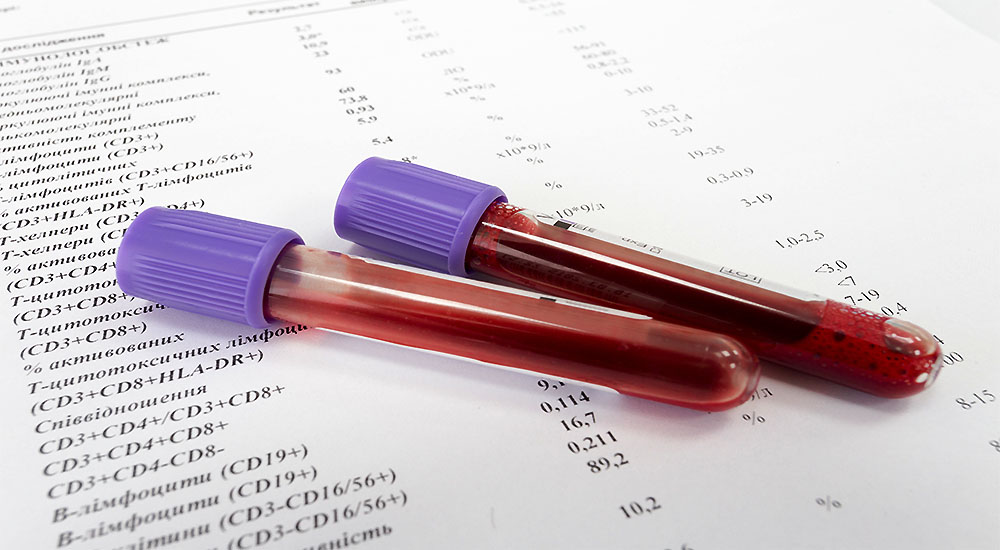One Step to Prevent Heart Disease

ONE thing to know to dramatically lower your risk of heart disease
Welcome to February – the month of hearts and roses and chocolate.
But we don’t just celebrate Valentine’s Day and pink hearts full of candy; we also put the spotlight on the heart itself – the organ that fails in more of us than any other body part.
Heart disease claims 1 million American lives each year
Every 36 seconds an individual has a heart attack. Every 60 seconds someone succumbs to a disease related to the heart.
It can be tough knowing how to approach improving your heart health. We receive so many different messages that completely disagree with one another.
One thing is for certain, heart disease is our number one killer and high cholesterol is the number one risk factor associated with the disease.
Drug companies love to tell you there’s nothing you can do
I remember a commercial from a few years ago for cholesterol-lowering medication. The commercial began with a doctor discussing high cholesterol with his patient and advising him to improve his diet. It then cut to 2 months later where, apparently, the patient had “done his very best” to improve his diet, only to find out his cholesterol hadn’t improved at all.
The solution? Here’s your Lipitor.
The false message: diet doesn’t work to improve cholesterol levels; you need drugs.
The more insidious and subliminal message: don’t bother even trying to change your diet, it won’t work.
That’s a complete lie, by the way.
The study “showed” beef lowers cholesterol. Really? No, not really.
How about this for a confusing press release: “Beef lowers cholesterol”. You think, great – bring on the burgers!
Is there a nagging thought that perhaps that’s not true?
Are you suspicious that you’re being manipulated by an industry trying to sell you beef?
It’s unfortunate we need to be so skeptical but it’s also unfortunate that industries feel no compulsion to tell the exact truth. It could make a cynic out of anyone!
You are being misled
There was no exaggeration in the press release I cited. It was real and based on “results” from the BOLD study – Beef in an Optimal Lean Diet. And yes, it was bought and paid for by the beef industry in case you were wondering.
Did they lie? Yes and no actually, making it all the more insidious. Did they mislead? Oh YES!!
The “study” concluded, “lean beef can be included in a heart-healthy diet that meets current dietary recommendations and reduces [heart disease] risk.”
How did the beef industry arrive at their conclusion?
Let’s get to the facts of the study. What they did was add beef to the diets of individuals for whom they also removed the vast majority of pork, poultry, cheese, and fish.
They removed so many of these other animal products that they literally cut in half the saturated fat intake of the participants.
Of course, such a cut would result in a lowering of cholesterol.
One could substitute literally anything, including lard, and if it coincided with a dramatic total decrease of saturated fat in the person’s diet, their cholesterol would go down.
We already know that decreasing saturated fat reduces dangerous cholesterol
This study didn’t prove anything we didn’t already know – if you cut down a person’s saturated fat intake their cholesterol will go down. There wasn’t anything special about “lean beef”.
Literally any industry who has a product that raises cholesterol, namely eggs, dairy or poultry, could have done the exact same study for their own product and “proven” the exact same thing.
In fact, a lard manufacturer or a producer of donuts could present the same study. Perhaps a red flag would” go up faster if Dunkin’ Donuts had done the study, but if they had followed the same parameters they would have yielded the same “success”.
The question is: Would you believe the press release stating “Donuts found to lower cholesterol”?
The study increased fiber intake; a known successful action
The researchers also, by the way, increased the participant’s fiber intake and protein from plant sources, another well known successful action to decrease cholesterol.
They may have cut their total saturated fat intake from 12% of their diet to 6%, but is that good enough to truly make them healthier?
As Dr Greger, from nutritionfacts.org points out: “the subjects in this study went from a high risk of dying from heart disease to a high risk of dying from heart disease.” That’s right; no substantive change was made in their heart disease risk.
How about not just lowering cholesterol but truly improving health status to the point one’s risk for heart disease is all but eradicated? Possible? You bet.
The Chair of Nutrition at Harvard University stated plant sources of protein are preferable over animal sources when lessening one’s risk of heart disease.
Do you want to be immune to the possibility of a heart attack?
You need to get your bad cholesterol (LDL) to a level of 50 to 70. That is your goal. If you’ve already had a heart attack your goal is an LDL under 55.
But your doctor tells you your LDL is fine when it’s over 100 or even higher, why is that?
Lab values state under 100 is “ideal” but 100 – 129 is considered “close to ideal” and 130 – 159 is only “borderline elevated”. That means your doctor won’t mention your LDL levels are unhealthy until you’re over 160 – and that’s the problem.
“Normal” for labs is being defined as what’s “average” and “common” in unhealthy Americans. The pool that’s being analyzed is unhealthy; you don’t want to be the average for that group.
“Normal” blood levels are putting you at risk for heart disease
The average American has an LDL of about 130, almost twice what is being recommended by researchers who state the physiologic normal range to be 50-70.
How should normal be defined accurately? Normal should be the level, that if maintained, atherosclerosis does not develop – again that’s an LDL between 50 and 70.
How were “ideal” levels established?
An LDL around 50 is the level we begin our lives with; it’s the level primates have; and perhaps most importantly it’s the level found in populations completely free of heart disease.
That would be a good group to look at, right? Populations for whom heart disease is basically unheard of?
That’s what researchers did and the magic number for LDL was between 50 and 70. My LDLs are at that level, by the way, proving that a nut loving, avocado addicted person can achieve that goal!
How do you evade heart disease?
As our number one killer, there are many studies done on heart disease. Large cholesterol-lowering trials certainly support that the higher one’s cholesterol the higher the risk for developing atherosclerosis.
How does one attain zero risk of heart disease? It’s found at LDL levels of about 55.
Why doesn’t your conventional medicine doctor tell you this?
If this is so well known, why aren’t more doctors speaking about it? Remember, traditional medicine thinks of drugs as “solutions”. American doctors are convinced they can’t get their patients to make dietary changes.
Therefore they think healthy LDL levels can only be achieved by daily medication for everyone for their entire lives! Okay, that would be expensive.
But what if these same individuals cut the saturated fat and cholesterol found in animal protein? Yup, that would work too and it wouldn’t cost a dime in medication costs!!
Conventional medicine doesn’t think highly of your ability to change your diet
Your country’s doctors make a very interesting assumption about you.
They’re not completely incorrect, but here is what they think: Americans won’t change their diets, and asking them to maybe overly taxing and stressful on them.
And having heart disease ISN’T stressful?
Yes, I’m being a bit cynical, but the powers that be have made that conclusion.
Doctors feel that asking Americans to change their diet in order to be immune to the risk of heart disease is just asking too much of them.
Do this to protect yourself and your family against heart disease
Start with eliminating all saturated animal fat and cholesterol from your diet.
Give it about 6 weeks and you will see a lowering of your LDL.
If you have a strong genetic predisposition to high cholesterol and heart disease, you may need some specific help to discover what it is about your genetics that drives such inflammation.
This is what we do here at Root Cause Medical. Genetics can be a strong predisposing factor for disease, but it does not mean you must develop the disease. You’ll just have to work a little harder and smarter, and we can help you do that.
I want to thank the team at nutritionfacts.org for their tireless pursuit of research that discloses the truth vs. the lies promulgated by industries with a vested interest to keep us blind to the facts. Dr. Michael Greger digs deep to unearth the lies behind “studies” that just don’t make sense. There is always a reason and a manipulation of the truth that you have a right to know about.
What’s your risk?
It’s easy to think that heart disease won’t affect you or a loved one.
If you’re in your twenties or thirties it may seem too far off to worry about. But now is the time to make the changes that can prevent you from becoming a statistic.
Children as young as 8 years old have fatty streaking in their artery walls. This is an early sign of atherosclerosis.
Young soldiers in their twenties have fatty deposition in their arteries that will lead to atherosclerosis.
Sudden cardiac death, where the first sign you have of heart disease is you die, is responsible for half of all the heart disease deaths in the U.S.
9 lifestyle factors to reverse and prevent heart disease
I’ll be addressing these 9 factors in my blog next week. Stay tuned!
Was this helpful? Are there other topics you’d like to hear me discuss? Let me know. I’d love to hear from you.
Do you want to improve your heart health?
Are you ready to get healthier, but don’t know where to begin? Are you worried about your heart?
It doesn’t have to be difficult but you also need a clinician who understands how to look at your body as a whole.
We create personalized programs to identify and address the underlying root cause of why your heart isn’t functioning optimally.
Here at Root Cause Medical, we have the tools to isolate and identify the real reason. The fact is, there’s always a reason for body malfunction and when it is discovered, your body heals. It’s not magic, but it’s close.
Your body is an amazing machine – it’s very strong; it’s very tough and it knows how to heal. It just needs a little help.
Do you need help with your health?
We have the diagnostic and testing tools, the clinical experience, and a different medical approach to discovering the root cause of why you have the symptoms that are bothering you. As long as you are ready to make some dietary and lifestyle changes, we can help you. We will "hold your hand" through the changes, step by step, to make each step an easy one. We are located in Clearwater, FL, at 1000 S Ft Harrison, at the corner of Ft. Harrison Ave. and Magnolia St. There is plenty of parking space directly accessible from Ft Harrison. If it is not convenient for you to come to Root Cause Medical Clinic, we offer telehealth/telemedicine consultations to residents of certain states. Call us for details.
Contact us for a Consultation – Call 727-335-0400

Dr. Vikki Petersen DC. CCN
Founder of Root Cause Medical Clinic
Certified Functional Medicine Practitioner
Dr Vikki Petersen is a public speaker, author of two books, several eBooks and creates cutting edge content for her YouTube community. Dr Vikki is committed to bringing Root Cause Medicine and its unique approach to restoring health naturally to the world.
Ask a Doctor
Have a health concern you'd like to speak with a doctor about? Or just want clarity on a subject? Ask Us!
Featured Articles
Popular Stories
References:
American Journal of Clinical Nutrition. 2012 95(1):9 – 16. M. A. Roussell, et al. Beef in an Optimal Lean Diet study: Effects on lipids, lipoproteins, and apolipoproteins.
American Journal of Clinical Nutrition 2012 95(5):1294 – 1295. A. M. Bernstein, W. C. Willett. Conclusions of the Optimal Lean Diet Study go beyond the data.
Journal of the American College of Cardiology, 2004 Jun 2;43(11):2142-6. J H O’Keefe Jr, et al. Optimal low-density lipoprotein is 50 to 70 mg/dl: lower is better and physiologically normal.


